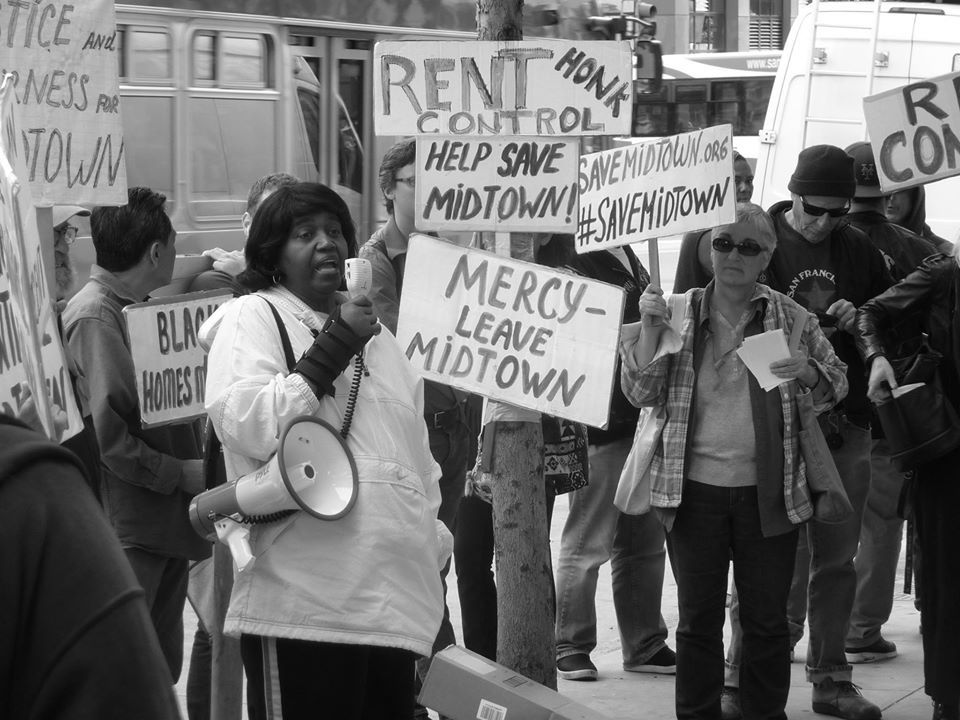The Board of Sups will have the opportunity to put Midtown Park Apartments back under rent control Tuesday/6.
The legislation, introduced by District 5 Supervisor Dean Preston, has the support of much of the board, with Supervisors Gordon Mar, Aaron Peskin, Matt Haney, Hillary Ronen and Shamann Walton as co-sponsors.

The legislation would give Midtown tenants back the historic rent control protections that they enjoyed for more than 30 years. Midtown received rent increases pursuant to the Rent Board from 1979 when the city’s rent control law passed, to 2014, when the city gave a contract to manage and develop Midtown to affordable housing developer Mercy Housing (last year Mercy Housing finally recused itself from its role at Midtown, a development residents considered a major victory).
When Mercy Housing took over the management of Midtown and brought residents under the nonprofit’s income-certification model of rent, rents soared, with residents facing 300 percent increases in rent. Rather than leave because of the new high rents and risk mass displacement from the place that many had called home since its inception, residents organized to take a different approach. They began a partial rent strike, paying only the rent that they had paid under rent control and not the new increases.
Midtown residents appeared before the Rent Board and later sued for the restoration of rent control; their suit was denied on the basis that city-owned properties are not subject to the rent control law. Midtown is the only city-owned property that is not public housing— and therefore the only property to which this ruling applies—creating an effective loophole for the removal of rent control at Midtown.
Midtown is a historically African American community whose residents have lived in the complex or the neighborhood since before Redevelopment. For residents, who view their fight at Midtown as a struggle to maintain the claim of equity that was promised to them by the city, the restoration of rent control is a necessary step in stabilizing their rents—and their community—so they can continue the long-term fight of attaining equity ownership.
“Rent control is a big part of why we are here today and why the Midtown community is still intact. Our community deserves those protections,” said Rufus Watkins, a second-generation resident of Midtown. In other words, why should Midtown, a community that has managed to overcome so many of the destabilizing policies and events of the last 50 years, be uniquely subjected to the destabilization of the loss of rent control?
“It fundamentally is an issue of fairness” said Supervisor Dean Preston. “If an apartment across the street from Midtown can have rent control protections, why shouldn’t Midtown? Why should an apartment in Pacific Heights, owned by a private landlord, have rent control protections while Midtown doesn’t?” If anything, Preston argued, residents should expect the city as a landlord to have more responsibility and a greater commitment to affordability.




